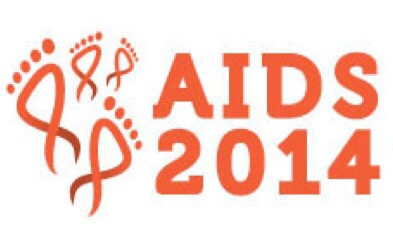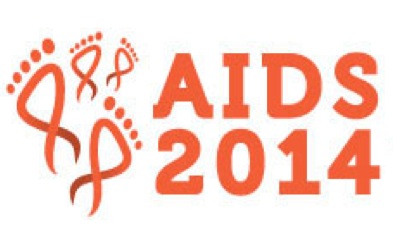A two day meeting of sex workers from more than thirty countries was held in Melbourne, July, 2014 and documented the outcome of workshopping, discussing and agreeing on key statements across five areas. The meeting was the sex worker pre-conference meeting for the 20th International AIDS Conference – AIDS 2014.
Sex Worker Pre-conference AIDS 2014 Consensus Statement (18/07/14-19/7/14):
1. Biomedical developments
Sex workers are concerned that funding towards biomedical approaches will be taken from sex worker led community interventions.
An emphasis on testing without acknowledging: legal barriers; the impact of stigma and discrimination; and barriers to treatment and services; limits sex workers’ ability to access non-judgemental, quality, voluntary, testing, treatment, care, support and services.
Information and access should be comprehensive and easily understood.
Current and existing implementations of biomedical approaches are doomed to fail because they don’t take into account discriminatory legal frame works that create barriers for sex workers.
Rapid testing of HIV could lead to enforced or mandatory testing of HIV, STIs and BBVs and we have no control over what happens to the information.
Biomedical responses are often imposed without thought of the workplace health and safety of sex workers which need to be considered before implementation.
Sex workers are being forced to engage, without consultation, without adequate information so we can choose if and how it can benefit our community. Sex workers face pressure from governments to be tested and pressure from clients who want workers to use PrEP in place of existing safe sex practices.
New approaches don’t meet the needs of sex workers, we need to maintain and increase funding for sex worker led community programmes.
Legal Barriers for sex workers are still so significant that unless we resolve those issues first, through the full decriminalisation of sex work, test and treat or treatment as prevention are abstract concepts that have no meaning for sex workers but will divert resources away from approaches that we know work.
The reality for sex workers is that we have little to gain when an emphasis is put on treatment as prevention.
PrEP and early treatment will be used as evidence by police against us just as condoms already are. Rapid testing = rapid criminalisation
Sex workers say: For us it’s not testing for support but screening for control.
2. Stigma and discrimination
Recognise the importance of sex worker voices- stop anti’s speaking over us.
Combat anti-sex work rhetoric – their arguments are not valid.
Humanising sex work – this has costs re the perceived “obligation” of revealing our lives.
Challenge how sex workers are spoken about & prioritise lived experience.
Recognise stigma exists within the HIV sector.
Sex workers are often trapped between the stigma of being perceived as vector of disease without agency but still remain voiceless even within the HIV sector.
Statements:
- You can’t stop HIV without sex workers.
- The HIV sector must stop stigmatizing sex workers.
- Sex workers are the experts in and for our community.
- Nothing about us without us. Decriminalisation is required to end HIV.
- Sex workers speak from lived experience. Don’t silence us, don’t speak on our behalf.
3. Human Rights issues including criminalisation of HIV and sex work
- We believe sex workers should be recognized as the experts in our field and in our lives. We are organized globally and support full decriminalisation of sex work and sex workers including sex workers living with HIV.
- No criminalisation of sex work, our clients, work places or other laws pertaining to sex work. We unanimously reject models that criminalise sex workers, our clients, and places of employment. This will allow us to advocate for workplace health and safety, access to anonymous, non judgemental, free and voluntary testing, and quality services, support for safer sex practices and the prevention, treatment and care of HIV.
- The AIDS2014 conference declaration has expressed the shared and profound concern at the continued enforcement of discriminatory, stigmatizing, criminalizing and harmful laws which lead to policies and practices that increase vulnerability to HIV. Sex workers want to ensure that our laws, policies and practices parallel this declaration.
- We want to hold governments and donors accountable to their commitments, step up the pace and turn these policies and commitments into action that results in law reform.
- We demand the inclusion of sex workers as stakeholders in all aspects of policy development processes.
- All UNAIDS, UNFPA, UNDP, UN family and Global Fund policies must explicitly recognise and support full decriminalisation of all aspects of sex work.
4. Migration and mobility
Detention of sex workers increases HIV risk.
Sex work is work – migrant sex workers choose to work just like other sex workers.
We are not victims. We are not trafficked!
Don’t ignore the evidence.
Being sex workers should not limit our right to migrate.
Restricting our movement restricts our access to treatment, care and support.
We oppose the mandatory testing of migrant workers upon arrival, and the denial of visas based on serostatus.
We don’t need your pity. We need our rights.
5. Funding
Governments must include direct funding for sex workers, including sex workers of all genders, in their national strategies.
UNAIDS should take leadership on getting sex workers included in national strategies.
Sex workers need funding, not just words on paper.
We want funding for sex workers to consult and provide advocacy within national strategies.
Sex workers in all countries should be receiving funds under their national strategies.
We demand that national strategies and their implementation fund sex worker communities directly to do health promotion and human rights advocacy.
Give the money directly to sex workers. It’s what works best and it is cost effective. It’s about time!
We need funding for sex worker community led research and work. We have outreach data and want to share this evidence, but we need money for training and to analyse our data.
Governments and donors, you lose face if you sign up for global targets, but at the same time gag sex workers from lobbying and advocacy for the changes we need. If you are going to sign up for targets you need to stop using gag clauses that stop organisations from challenging human rights abuses against sex workers.
Funding needs to have a human rights approach to HIV prevention and support, not a medicalised approach.
Stop HIV funding to faith based organisations working on sex worker issues. Stop HIV funding to ‘rescue’ and ‘rehabilitation’ organisations.
We need funding for regional and global sex worker’s conferences and sex worker attendance at international conferences and thus funding sex workers to shape the response to HIV.
No one left behind in terms of funding!
All UNAIDS, UNFPA, UN family and Global Fund to integrate human rights into all stages of their grant making processes.







[…] Sex workers are being forced to engage, without consultation, …read more […]